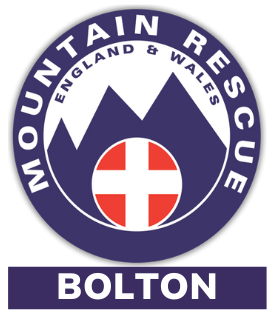Today six of our full Team Call Out members attended a training course on ‘Understanding and Managing Psychological Trauma’ held at Manchester University. The invitation to the team was kindly extended by Cath Nally, Civil Contingencies Officer with Bolton Council. The course was ably presented by Richard Barnard, Head of Psychological Services at Wythenshawe Hospital and Dr Christopher Findlay, Consultant Psychiatrist at Halton General Hospital.
Along with Bolton MRT were delegates from Civil Contingencies and Resilience Unit of the Association of Greater Manchester Authorities, Bolton Council, Wigan Council, Oldham Council, Greater Manchester Fire and Rescue Service and the British Red Cross.
The day started with a brief history of reactions to trauma from World War I ‘battle fatigue’ caused by ‘lack of moral fibre’ to modern day awareness of Post Traumatic Stress Disorder (PTSD) as a recognised condition. It continued with risk factors pre-disposing to developing PTSD; common reactions to trauma; recovery and resilience; psychological first aid and self-help; and current best practice in the treatment of PTSD.
An important message was that stress reactions to trauma are normal and understandable, and that around 75% of people exposed to trauma will make a full recovery without any need for professional intervention. For this reason, formal debriefing sessions are no longer considered good practice and indeed have been shown to have the potential to cause harm. It is far better to utilise existing social, family and community support networks.
However, a minority of people will still be displaying symptoms after nine months and will require professional help. If not provided, then secondary problems such as depression, alcohol abuse and social phobia are likely to develop. But people with PTSD are highly reluctant to seek help, so plans need to be in place to offer a stepped programme, matching resources progressively to the needs of the individual.
For the Team, there were many useful lessons. Members exposed to trauma will experience varied reactions. An acceptance of the normality of such reactions and ensuring social support from within the Team is offered and accessible is advisable. When we are dealing with families of missing people, the guidance on Psychological First Aid was reassuring. There is no need to be a health professional, normal human kindness, support and empathy are the most important.
A lunch break provided the opportunity to mix with other delegates, many of whom showed a keen interest in the work of the team. The course concluded early afternoon with the opportunity for questions and discussion. The team is extremely grateful to Cath Nally for inviting the Team to attend, and to the organisers and presenters of this most worthwhile event.



